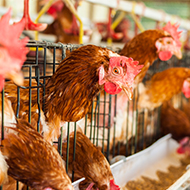Oblique PUO technique could support HIF healing, study finds
“It has the potential to revolutionise the treatment of this devastating disease and prevent countless unnecessary amputations.” - Dr Alan Danielski
New research has revealed that using an oblique proximal ulnar osteotomy (PUO) could support the healing of humeral intracondylar fissures (HIFs) in spaniels.
The technique would reduce the high complication rate which is associated with transcondylar screws.
HIFs are considered to be a cause of thoracic limb lameness in spaniels. It is a weakness of the humeral condyle, and can often result in elbow fractures.
It was originally believed to be due to a failure of the centres of ossification of the humeral condyle to fuse, however more recent research has suggested it could be a result of stress fractures due to joint incongruity.
The study, conducted by Dr Alan Danielski, aimed to investigate how oblique PUO could heal HIFs, reducing the risk of transcondylar screws. Transcondylar screws have a post-operative complication rate of approximately 69 per cent.
The data involved 51 elbows across 35 spaniels, from which 24 partial HIFs and 27 complete HIFs were diagnosed.
The first part of the study identified a previously undocumented cartilaginous lesion, called a humero-anconeal lesion, in the caudal humeral condyle in elbows with HIF. The lesion showed various degrees of cartilage damage and, during elbow extension, the anconeal process perfectly matched the lesion.
This suggested that humero-anconeal incongruity could be the cause of the fissure’s development.
Based on this, Dr Danielski theorised that improving this incongruity could contribute to healing the HIF.
The second part of the study sought to prove the hypothesis that healing the fissure could be achieved using oblique PUO, which allows translation and tilting of the proximal ulna. This would displace the tip of the anconeal process more proximally, to prevent it applying an abnormal load to the caudal aspect of the humeral condyle.
The 35 spaniels each underwent PUO surgery, followed up by assessments including CT scans 18.5 months post-surgery.
The results revealed that 80.3 per cent of the 51 elbows achieved healing. This included five dogs which had been suffering from complications due to transcondylar screws.
This suggests that, not only does this technique have a reduced complication rate while healing the fissure, it can also be used as a revision strategy for dogs suffering from complications.
Dr Danielski said: “This manuscript represents the culmination of years of research and dedication.
“It has the potential to revolutionise the treatment of this devastating disease and prevent countless unnecessary amputations.”
The full study can be found in the journal Veterinary Surgery.
Images © Dr Alan Danielski



 An Avian Influenza Prevention Zone (AIPZ) has been introduced across Wales.
An Avian Influenza Prevention Zone (AIPZ) has been introduced across Wales.